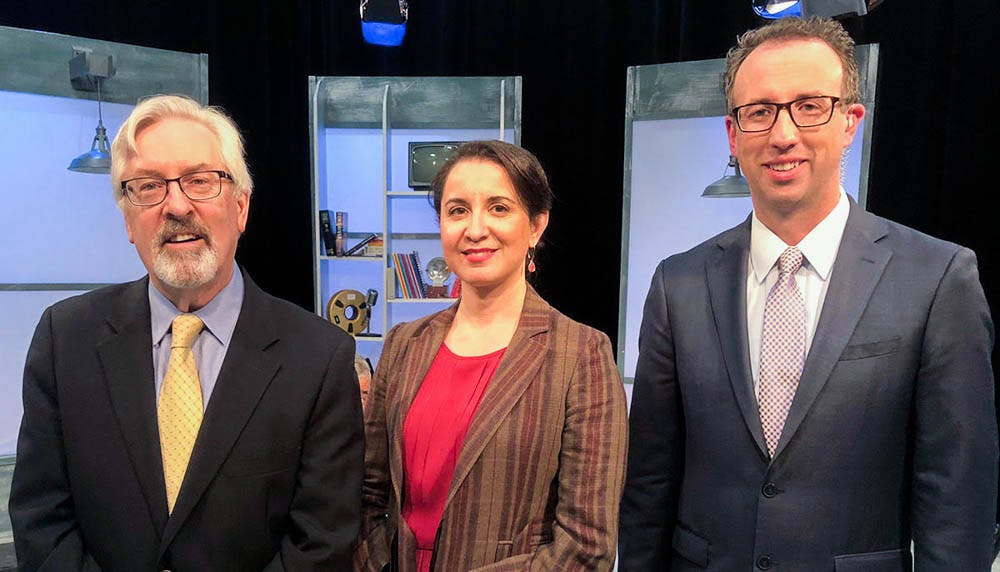Three weeks ago, Dima Amso, associate professor of cognitive, linguistic and psychological sciences and principle investigator in the Developmental Cognitive Neuroscience Lab took her second trip to Jordan to discuss the data her lab analyzed from the nonprofit organization We Love Reading. Her work focused on analyzing the effect of reading on the mental health of Jordanian children. Amso’s goal was to use the data to test the impact of this program on the cognitive development of children living in the country.
“We Love Reading is an intervention for children in (middle- and low-income) countries,” Amso said. Children in these regions tend to be exposed to reading for educational or religious purposes, according to the WLR website. But WLR provides “an opportunity to bring to kids the joy of reading for pleasure,” Amso said.
The relationship between Amso’s lab and WLR began about a year and a half ago after Amso took a trip to Jordan with other University faculty members to see how she could help those affected by the Syrian civil war. On her trip, Amso met Rana Dajani, director and founder of the non-profit. After the trip, the two stayed in contact and developed Amso’s research proposal.
While WLR is based on human-centered design, it supports its mission with rigorous research, an aim it hoped to expand by partnering with Amso, Dajani said.
Preliminary data for Amso’s work was collected in Jordan, both before and three months after children went through the WLR program. Amso’s lab analyzed the data and found that WLR seemed to be improving the mental health of Jordanian children, which the team found encouraging, Amso said. The data suggested that activities like reading for pleasure, hearing stories read aloud and taking books home to read with parents are having a positive impact on kids, she added.
While the nonprofit was created to have an impact on children of all communities and not only refugees, Amso said that future projects with WLR will involve assessing the efficacy of reading for pleasure as a resilience factor for children who are exposed to stressors very early in life, a common experience for children who are refugees.
“You have a group of children who are a unique population in that they are experiencing early life adversity in the form of chronic toxic stress,” said Alya Al-Sagar, visiting research associate in Amso’s lab. Moving forward, the lab aims to discern “what can predispose resilience to these stressors,” she added. Community engagement, interaction with primary caregivers and reading are factors that can work together to create resilience in refugee kids, she continued.
To achieve these aims, researchers hope to collect data on children’s daily experiences, measuring stressors, risk factors for stress and positive resilience factors, Amso said. The group aims to understand how those experiences interact to either mitigate or exacerbate the effects of the stressors on the children.
The data on these experiences can help Amso’s lab understand which variables help the children benefit from an intervention like those conducted by WLR. “We can’t change (the children’s) political climate but what we can do is say, ‘here are the resilience and risk factors that are going to make them most likely to benefit,’” Amso said.
Amso stressed that her work with WLR is not so much for the sake of research but rather for assessing the usefulness of the program as an intervention and considering ways to improve the intervention’s efficacy.
Amso hopes to expand her work with the organization and is in the process of writing a grant for a project that would assess WLR’s impact on resilience in children.





